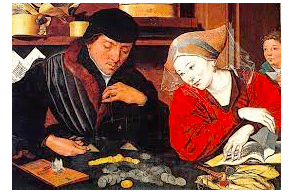A U.S. Treasury study found that shell companies and secrecy put the art industry at risk of financial crimes — but says other reforms are of a higher priority.
Citing evidence that the world’s biggest art market is vulnerable to money laundering and other financial crime, the U.S. Treasury department suggested in a new report that the agency consider a host of reforms — including requiring dealers to better vet their clients, report suspicious activities and improve transparency.
The high-dollar value of many art transactions, the frequent use of intermediaries to buy and sell art and a long-standing culture of privacy make the market “susceptible to abuse by illicit financial actors,” the 40-page report concludes.
While the report outlines potential reforms — including some that would bring the U.S. more in line with the United Kingdom and Europe — it falls short of recommending specific approaches. And it concludes by suggesting that the Treasury department focus first on closing other “outstanding gaps” in the U.S. anti-money laundering system, including those related to company ownership information and the real estate sector.
“We have found that while certain aspects of the high-value art market are vulnerable to money laundering, it’s often the case that there are larger underlying issues at play, like the abuse of shell companies or the participation of complicit professionals, so we are tackling those first,” Scott Rembrandt, a senior Treasury official overseeing the study, said in a statement to the New York Times.
The report was ordered by Congress as part of efforts to update American anti-money-laundering regulations. Last year, the U.S. added antiquities dealers to the list of professionals required to vet their clients and report suspicious activity to authorities, but didn’t apply the same rules to art dealers and auction houses.
The new report describes many of the vulnerabilities in the art market, in detail.
High-value art is portable, and often sold through intermediaries, disguising the true buyer and seller. In some cases, the entity involved in a transaction is a trust or a shell company, further obscuring ownership. Freeports — tax free, ultrasafe warehouses ? are used to hold art in secret, out of reach of tax and law enforcement authorities. Unregulated art financing firms provide loans to clients using artwork as collateral.
Read full article




